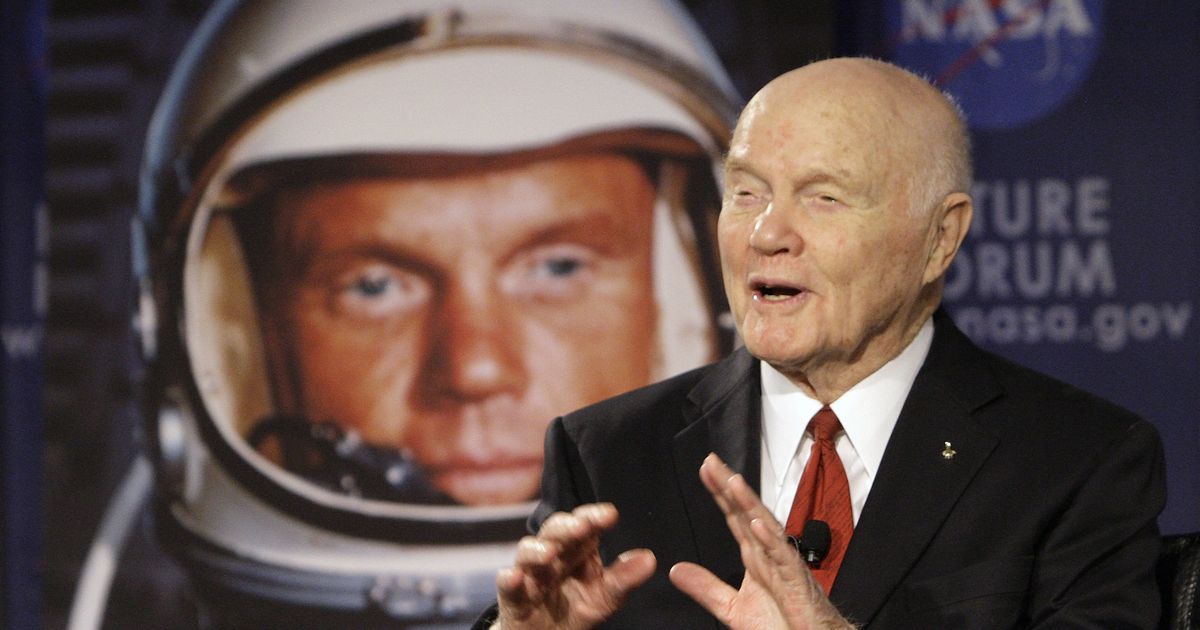
John Glenn couldn’t get to first base as a presidential candidate in 1984. Even then, America was more easily dazzled by Ronald Reagan, who had played a hero in the movies, than a man who flew 149 combat missions in World War II and Korea before becoming the first person to orbit the earth.
Long before game show host Donald Trump took the presidential plunge, we were well on the way to redefining words like “hero” and “celebrity” so that practically anyone could qualify
Glenn was the last survivor of the deservedly storied, fabled, heroic and celebrated Mercury 7 astronauts. His death at age 95 reminds us that there was a time when you had to do something your mother, and everybody else’s mother, would be proud of to become a person of interest to other celebrities and regular folks.
Those old enough to recall the dawn of the Space Age feel like we have lost the most dashing, fair-haired, genuine hero in the family. We knew Glenn’s name, and the names of his six Mercury compadres. We knew their wives’ names, too, and we identified with their children, who saw their daddies climb in to a tin can to travel to unimaginably faraway places filled with unimaginably dangerous things.
By the time Glenn sought the presidency, actual accomplishments were neither mandatory nor much appreciated. Most 80s voters wouldn’t recognize an astronaut standing next to him in line at a 7-11, and would not have wanted an autograph, anyway.
Glenn stayed in the game, and even returned to space at age 77 as a human guinea pig for gerontologists. “To sit back and let fate play its hand out and never influence it is not the way man was meant to operate,” he said. “If there is one thing I’ve learned in my years on this planet, it’s that the happiest and most fulfilled people I’ve known are those who devoted themselves to something bigger and more profound than merely their own self-interest.”


